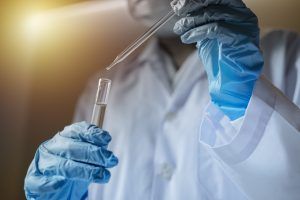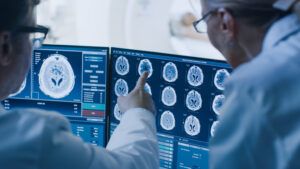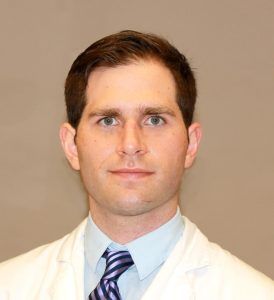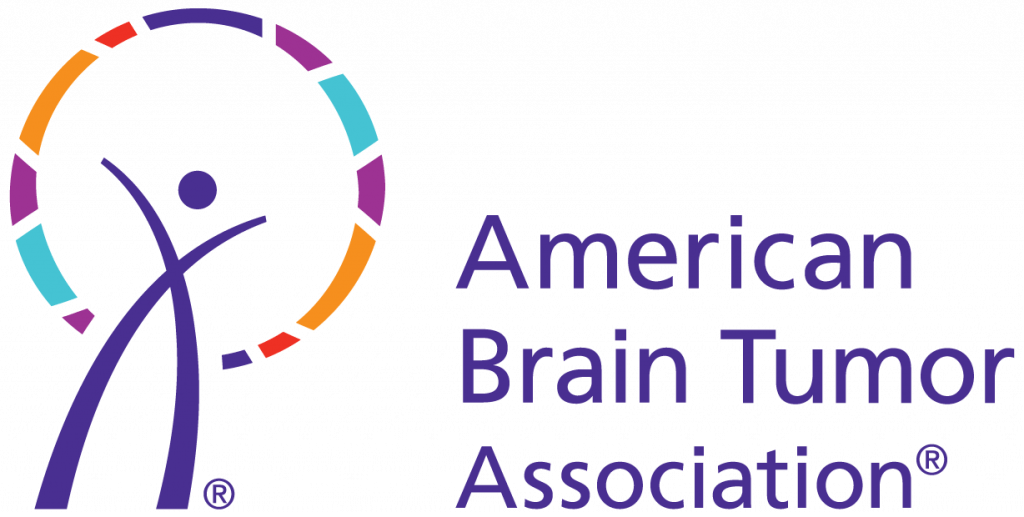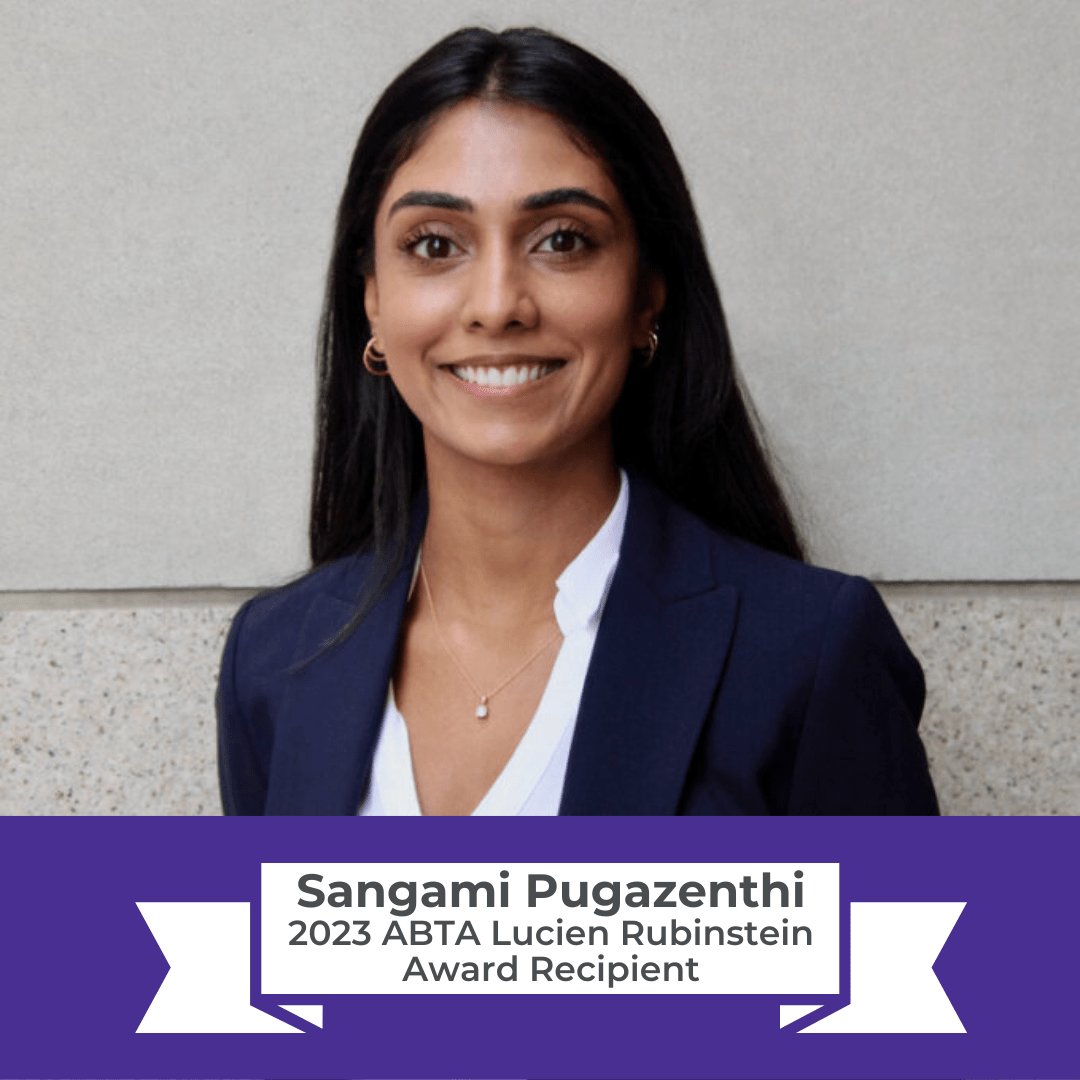
The American Brain Tumor Association has awarded the 2023 ABTA Rubinstein Award to Sangami Pugazenthi for her research project, “Elucidating Biological Processes Driving Radiation Resistance in Grade 2 Meningiomas.” Sangami is a 2023 ABTA Jack & Fay Netchin Medical Student Summer Fellowship recipient and a third-year medical student at the Washington University School of Medicine in St. Louis.
Her summer fellowship involved studying the relationship between NF2 mutations, tumor necrosis, and radiation resistance in grade 2 meningioma tumors. Sangami worked under the mentorship of Albert Kim, MD, PhD, a professor of neurological surgery in the School of Medicine and Director of the Brain Tumor Center.
Finding the Interplay: Radiation Resistance, Necrosis, and NF2 Mutations
Meningiomas are the most common primary brain tumor in adults, and although most are non-cancerous (benign), some meningioma tumors are resistant to current treatment strategies. NF2, a gene the encodes a tumor suppressor protein, is mutated in about 60% of grade 2 meningiomas. Studies have shown that tumor necrosis, or the death of cancer cells within a tumor due to lack of nutrients or blood flow, may predict resistance to radiation in some tumor types.
To determine the relationship between radiation resistance, NF2 mutations, and tumor necrosis, she compared tumors with necrosis that did not respond to radiation to tumors without necrosis that did respond to radiation. Overall, her research suggested that meningiomas with NF2 mutations and necrosis were more likely to be resistant to radiation than those without NF2 mutations and necrosis. Sangami said this resistance may be due in part to decreased cell death and increased cell proliferation.
Sangami and her lab plan to expand this research to better determine which meningioma patients are best candidates to receive radiation therapy, and to explore the use of molecular targets to re-sensitize patients with radiation-resistant meningioma.
Her mentor, Dr. Albert Kim, says her unwavering dedication and problem-solving abilities made her an invaluable asset in this research project.
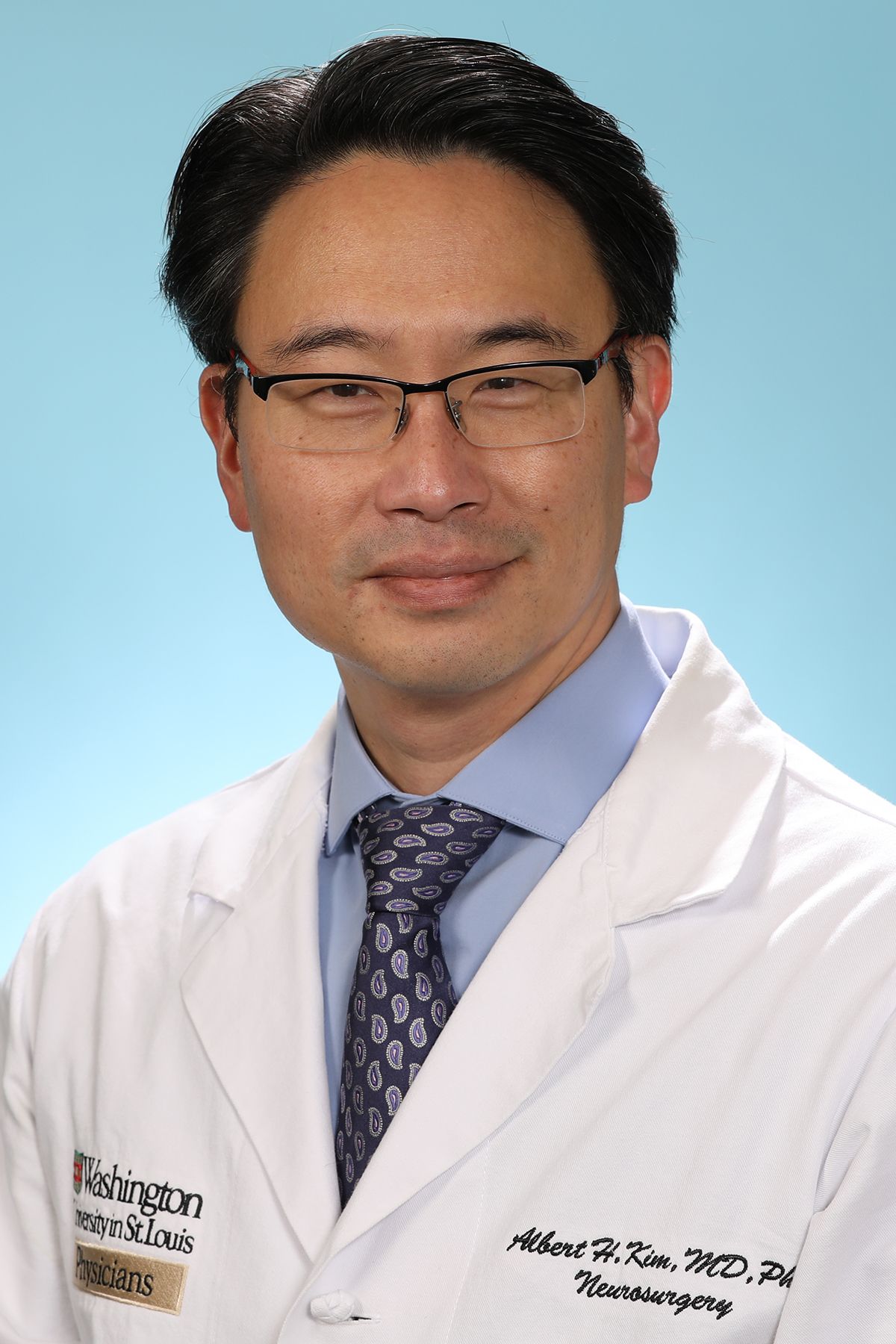
"Sangami not only built foundational and advanced skills in meningioma genomics research, but she also led a large project to the finish line with great leadership skills. I am proud to be Sangami‘s mentor and for her to receive the Rubinstein Award.”
– Dr. Albert Kim
Sangami said the ABTA Medical Student Summer Fellowship gave her an invaluable opportunity to build interest and learn critical skills needed as a brain tumor researcher.
“I believe supporting and cultivating medical student interest, involvement, and leadership in neuro-oncology research is extremely important for our future brain tumor patients,” Sangami said. “The ABTA grant has fueled my excitement for neuro-oncology research, which I plan to continue in my future career.”
About The Lucien Rubinstein Award
The Lucien Rubinstein Award is given to the ABTA Medical Student Summer Fellowship recipient who scores the highest marks from a panel of expert scientific reviewers on his/her project’s final progress report. Recipients of this award receive $1,000 in recognition of their outstanding work. The award is named in honor of the late Lucien J. Rubinstein, MD, who was a pioneer in neuropathology at the University of Virginia and a world-renowned brain tumor researcher.
The ABTA would like to thank the scientific reviewers for their insightful review of all the applications. Learn more about ABTA-funded research.

Bayli DiVita Dean, PhD
Bayli is a contributor to the bi-monthly newsletter MindMatters. She holds a PhD in Biomedical Sciences with a concentration in Immunology. Reach out to Bayli via email at bdivitadean@abta.org.


